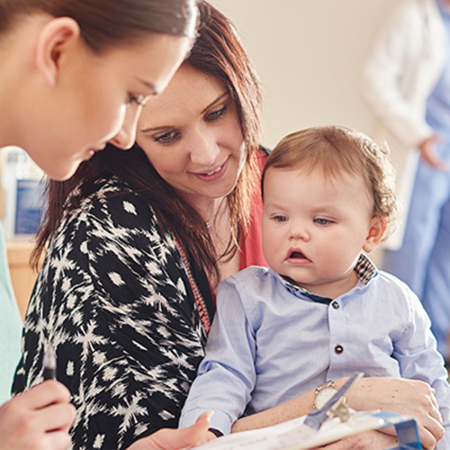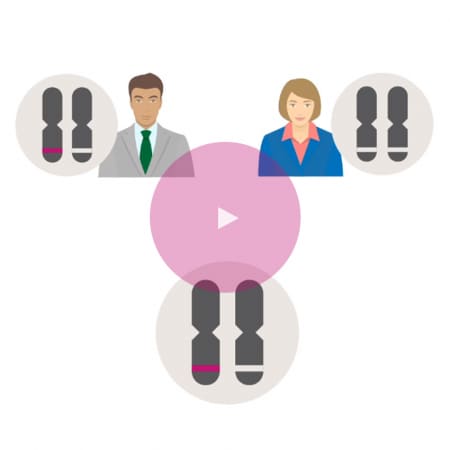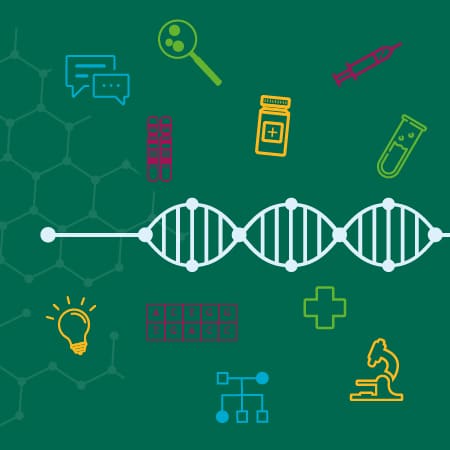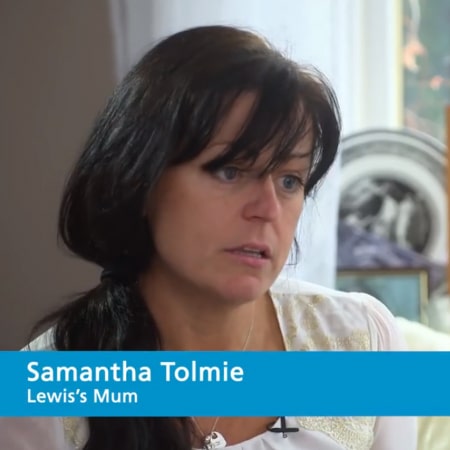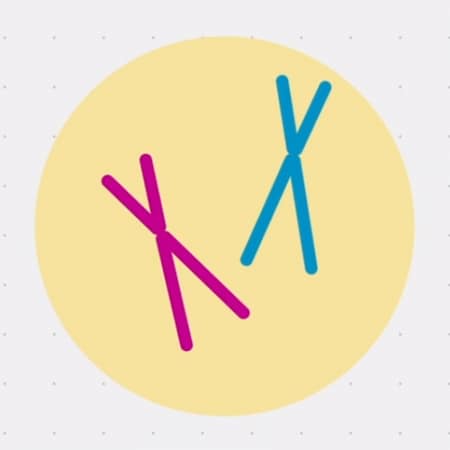In this teaching scenario, Maria discusses caring for her young child who has a dominantly inherited genetic condition
A mother who has a one-year-old child with achondroplasia talks through her family’s experience of the condition – from identification and diagnosis through to continued care and management. Maria also talks about the positives and negatives of the care provided during the first year of her son’s life.
Read Maria’s story below and use the teaching moments and discussion points to design your teaching session.
AT-A-GLANCE
Clinical focus: Rare disease
Nursing activities: Communication, management, family care, referral, identification, education
NMC platform and outcomes: 1 (1.11, 1.13. 1.14); 2 (2.9, 2.10); 3 (3.1, 3.2, 3.5, 3.12, 3.16); 4 (4.2, 4.3); 5 (5.4); 7 (7.8)
Maria’s story
Diagnosis
1 We first found out about my son’s condition when he was about a month and a half old. When he was born, we were told he had a large head and that we would need to take him for an ultrasound scan in a few weeks. This then led to more scans and an x-ray. Eventually, the results came back as achondroplasia.
2 Unfortunately, we had a bad relationship with our consultant at the time. We found him to be very rude and arrogant which made a very difficult time a lot harder, so we did not feel like we got the support and help that we really needed. When we were first given a possible diagnosis, we were told that my son would be “a bit short”. I don’t really remember fully being told what achondroplasia was. We left the hospital feeling very confused and unsure of what my son’s future held. I feel the situation could have been handled much better. When you are given such a life changing piece of information, there is a lot to take in. It would have been much more helpful to have been given some sort of literature on the subject to take home. Then, if there were things that maybe were not understood or were missed, there is a way of getting the information that is needed.
3 Everything seems to have taken a long time to get sorted. While we do appreciate that there are many people who have a lot more urgent problems that need to be treated, there just didn’t seem to be any procedure that should have been followed. We spent weeks trying to chase up consultants; there were times when we were just left not knowing when we were going to next see someone.
Management
4 My son will be over a year old when we finally have the appointment to see somebody at a London hospital who specialises in the condition. This has taken so long because we didn’t get a referral until my son was over seven months old and this was purely because nobody knew who we should be seeing. We would like to get an expert opinion from somebody who knows the condition and can check that he is developing well or let us know if there is anything we should be on the look-out for. Unfortunately, hardly anyone in this area has had to manage someone who has achondroplasia before, so they are kind of having to learn as they go. We did get to speak to a geneticist when my son was four months old who was very helpful and explained to us how my son came to have the condition. He also told us about some of the other complications that come along with it.
5 It was just very fortunate for us that we had a brilliant health visitor who gave us all the support she could offer. She helped us find out all that she could, even though she knew as little as we did. She spent much of her own time doing research on the internet about the condition and where to get some special growth charts for my son to record his progress. There were numerous amounts of calls made by her to our consultant in an effort to get appointments or just to chase things up. With the help of our GP, she also made sure that we got referrals to all the right people and got a different consultant. We were just made to feel very looked after, in spite of the fact that the rest of the system seemed to be failing us. It felt like somebody was on our side and looking after our best interests.
Final thoughts
6 Finding out that my son had achondroplasia was a shock. It was difficult to understand how he could get a condition of restricted growth with two average height parents. In our case, the condition was just caused by a change in one of my son’s genes which happened during conception and was not actually inherited from us. It is not something we can feel guilty about because it’s nobody’s fault, but at the same time he did come from us so I’m not sure if we should feel in some way responsible. It’s strange to think that if in the future he has children, then this is something that will possibly be passed on and be continued in his family. And all the while, it started off with two average height people. It has made us realise how much of a lottery life is.
7 My son is coming up to a year old now and the differences he has compared to the other babies of his age are starting to become more apparent. It makes everything seem a bit more real. We know that obviously there are going to be testing times in the future when he realises that he isn’t quite like the other children. We also know that what we say to him to explain this will affect the way he views himself. My son having achondroplasia has not changed the way we feel about him, or the way we will treat him. As we were once told, he’s the same little boy – just a bit shorter.
Educator touchpoints
Teaching moments
Paragraph 2 | How could the family be supported in the early stages following their son’s diagnosis?
Paragraph 6 | Like most cases of achondroplasia, this was not inherited, however if Maria’s son chooses to have children, there would be a 50% chance that they would have the condition.
Paragraph 7 | What support could be offered to the parents to help them to their child about his condition?
Discussion points
Paragraph 5 | If you encountered an unfamiliar condition, how would you approach finding out more so that you could give the individual and their family the best possible support?
Paragraph 5 | Why is it important that the family feel they have an advocate?
Paragraph 6 | Explore the idea of guilt felt by the parents. How could you help and support them?
Further learning
FOUNDATION KNOWLEDGE
A short animation to help explain dominant inheritance patterns
2 minutes
Tips and tools for communicating with patients about genomics
30 minutes
Learn the different ways that genetic conditions can be inherited within a family
30 minutes
We explore how genomic information is passed from parent to child, and cell to cell
30 minutes
EXTENDED LEARNING
Equip yourself to recognise rare diseases and support those in your care
20 minutes
Learn about how we inherit our genetic information in this article and animation
10 minutes


